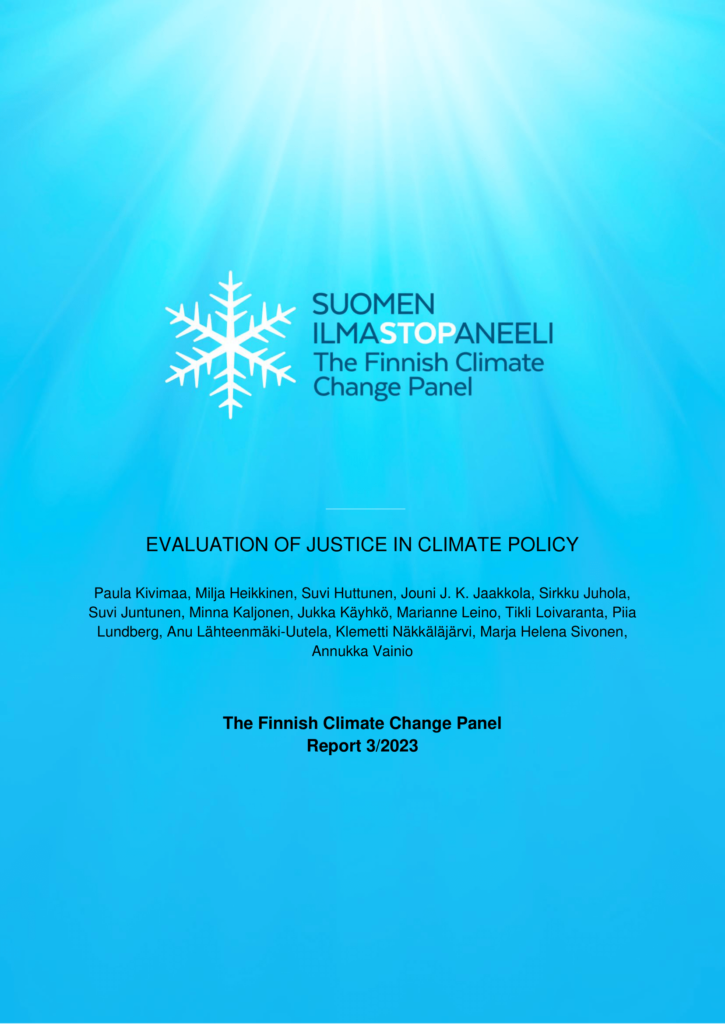Climate policy justice aspects have become central to the societal debate regarding climate policy. Securing climate policy justice has also been identified as an objective in Finland’s new Climate Act. The justice impacts of climate policy measures must therefore be evaluated when formulating climate change policy plans and when monitoring their implementation. The Finnish Climate Change Panel’s Climate Policy Justice project aims to increase awareness regarding justice in climate policy. This report examines how climate policy justice can be evaluated. To develop this evaluation work, the report presents a selection of questions for evaluating justice impacts.
Fundamental and human rights present a basis on which climate policy justice evaluation is built upon. The rights to life and health of current and future generations require the mitigation of and adaptation to climate change. The starting point of this report is that justice cannot occur without climate policy. At best, climate policy can be used to mend the injustices incurred by fossil fuel economies. Climate policy justice evaluations are needed to ensure that climate policy does not create new injustices, especially without compensating them in one way or another. However, climate policy alone cannot solve all questions of justice, and broader policy mixes must therefore be considered.
The report structures climate policy justice through three justice dimensions derived from the research literature: distributive, recognition, procedural justice. Distributive justice examines how the benefits and disadvantages of climate policy measures are distributed. Questions of restorative justice are also examined as a sub-theme of distributive justice. This sub-theme relates to the compensation of realized disadvantages or to the mitigation of detrimental effects. The ways in which distributive justice impacts influence various spatial scales from local to global requires scrutiny. Recognition justice focuses on how the various societal positions of individuals and sociocultural factors affect the spread of climate policy consequences. Procedural justice is used to examine the fairness of various policymaking phases. Considering different factors that increase vulnerability and groups that are central specifically to climate policy, such as future generations and the Saami, are important aspects of recognition and procedural justice.
Based on the abovementioned justice dimensions, this report presents a selection of evaluation questions that can be used to develop the evaluation of climate policy justice impacts. These evaluation questions offer the opportunity to comprehensively construe the justice impacts of Finnish climate policy. However, the justice dimensions are overlapping, and separating them from one another is not always pertinent.
In conclusion, we note that especially recognition justice challenges those preparing and evaluating policy to deliberate on justice impacts more deeply. Existing power positions and achieved privileges, the role of minorities, and, for example, the rights of unborn generations and the Saami are all factors requiring attention. Recognition justice offers the opportunity to recognize, for instance, those phases of procedures that require improvements, for example to enable the participation of the abovementioned groups. Developing justice evaluations is an important part of constructive conflict resolution, which will inevitably be needed in the future. Cross-disciplinary research is important for advancing justice. The justice impacts of climate policy must be monitored and they should be communicated in an open and accessible manner.




